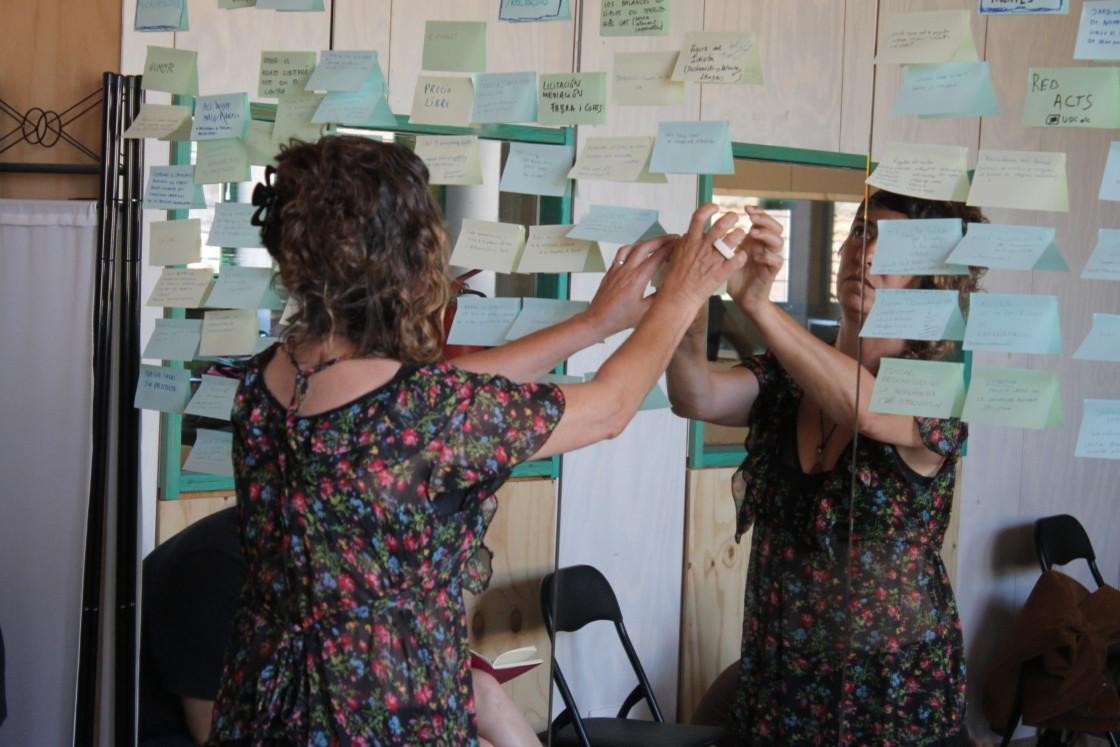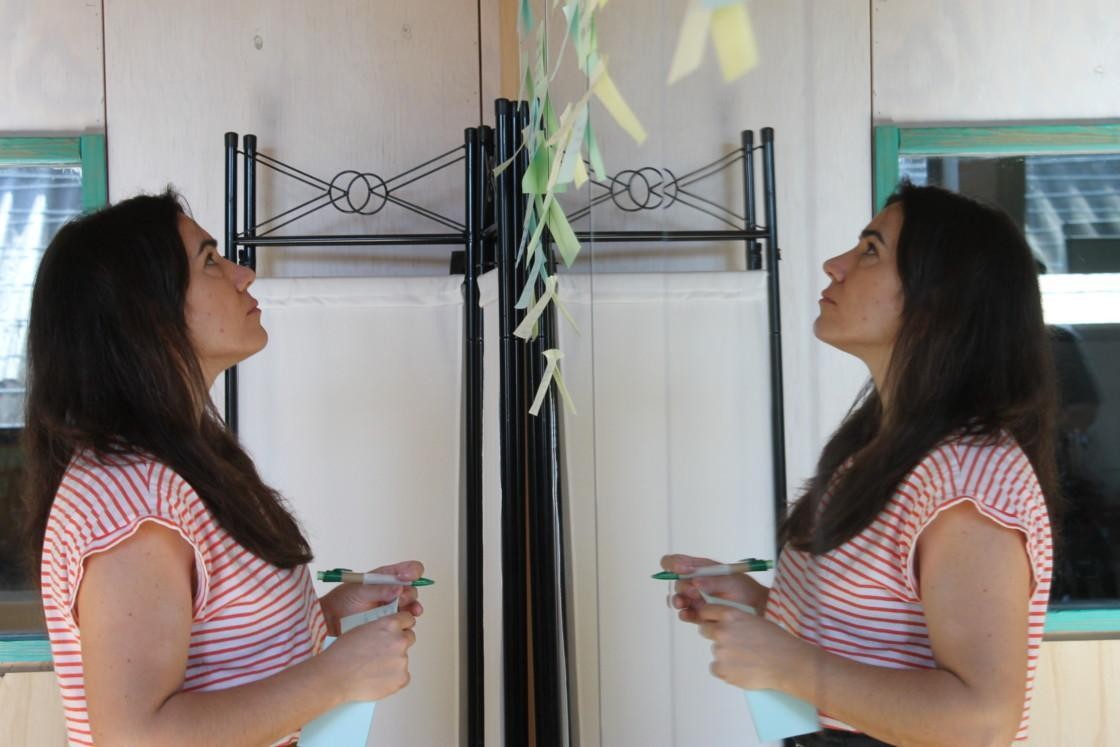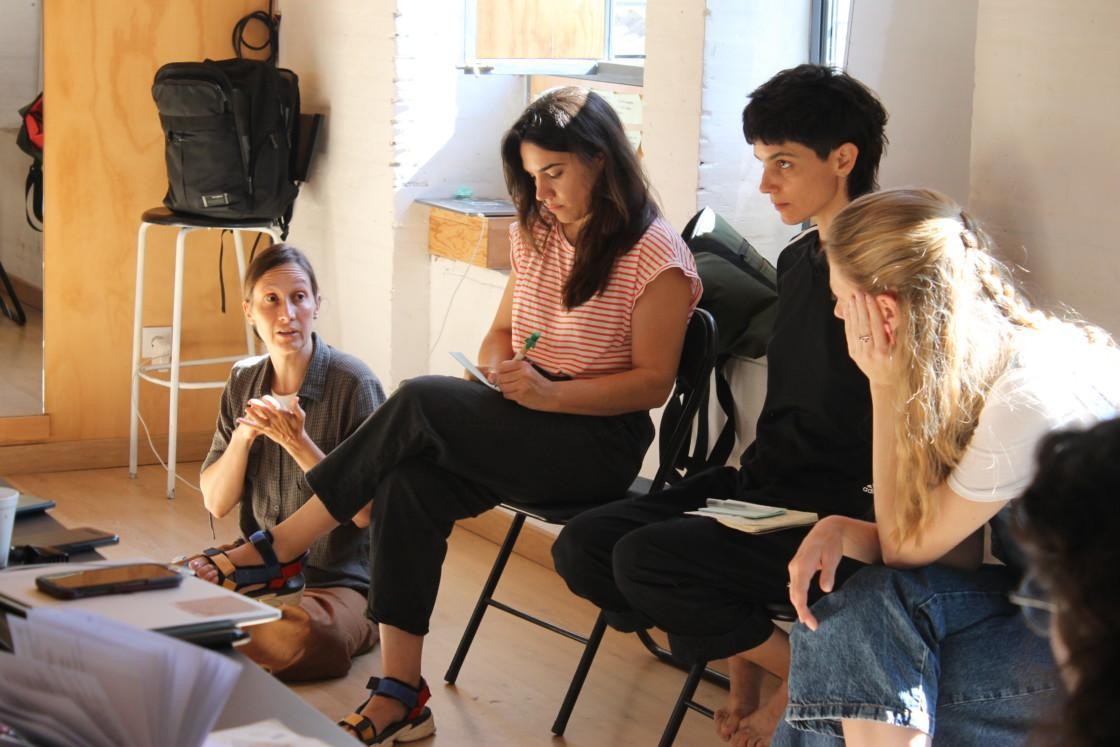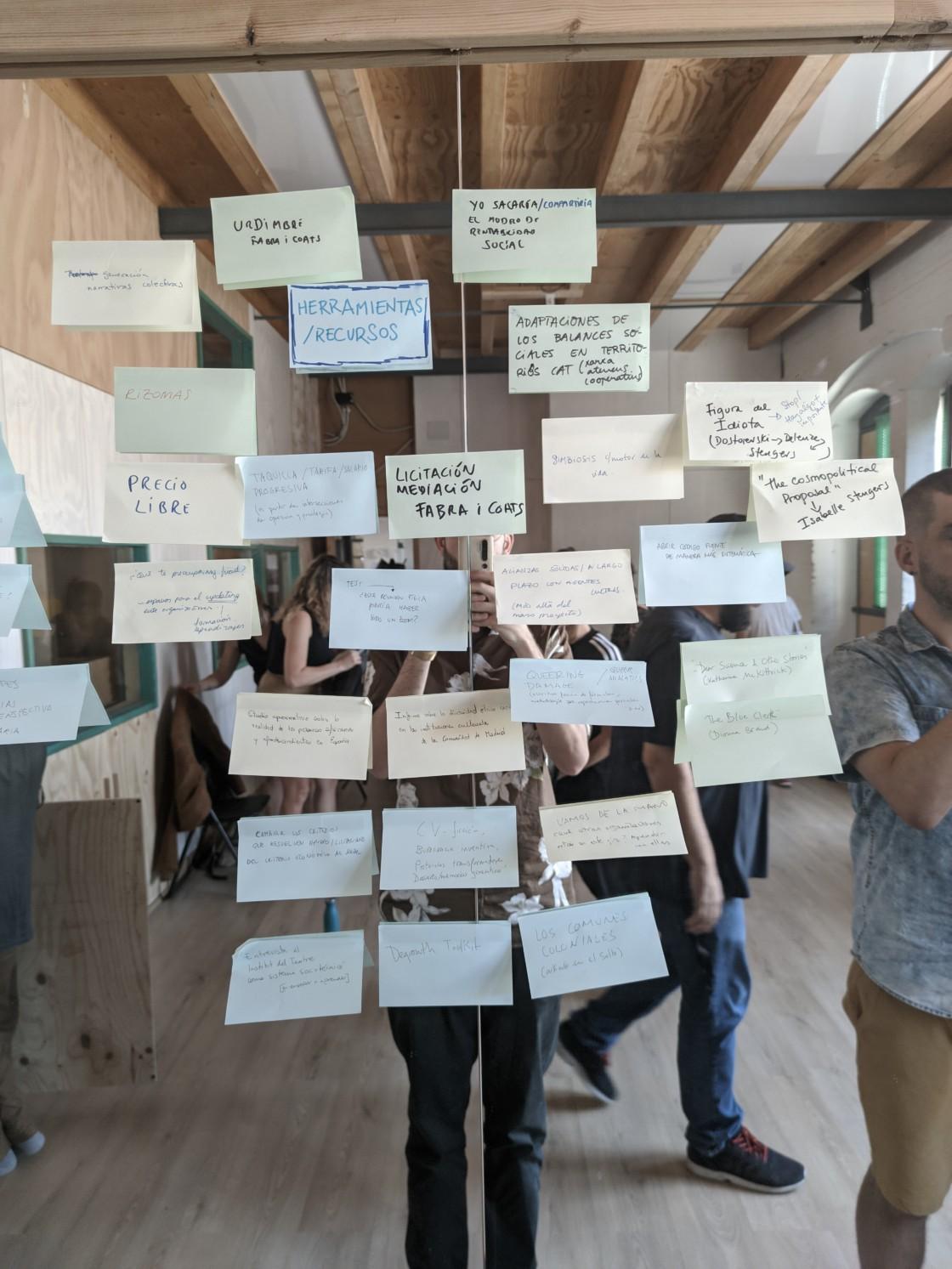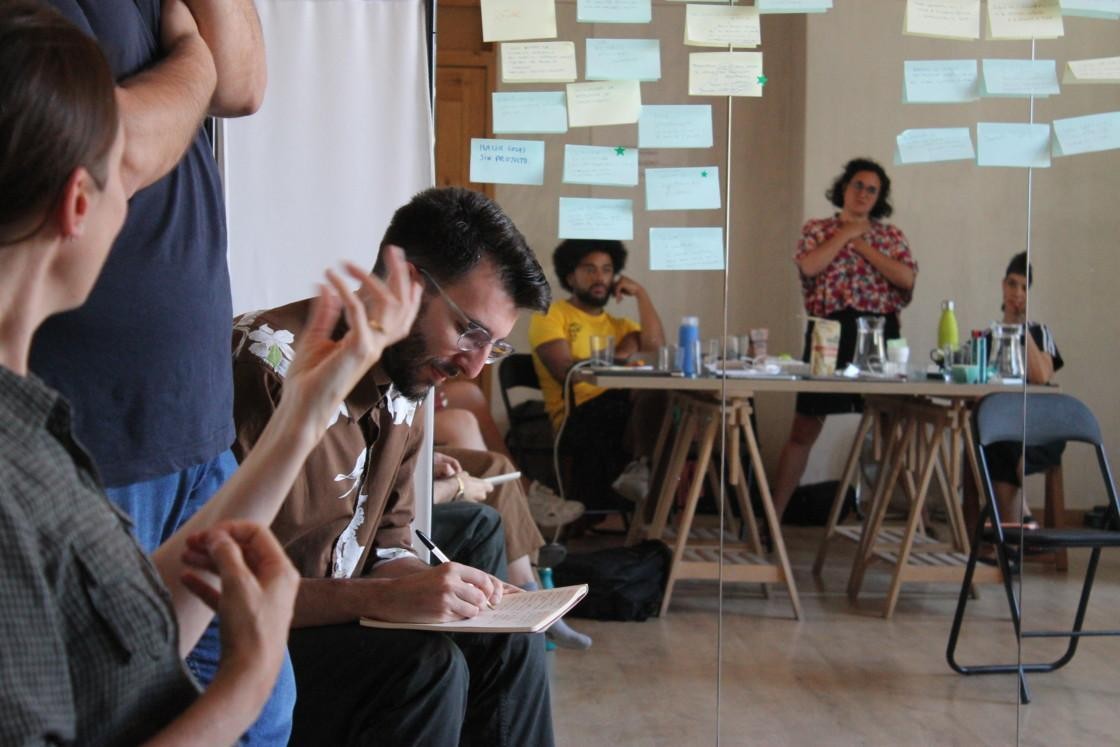The Hackcamp is a live methodological intervention combining P2P mediation and co-research that has been designed and facilitated by the ZEMOS98 collective. It consists of a participatory encounter that encourages participants’ creativity to address challenges faced by their creative institutions, organisations, and communities. During two or three days, Hackcamp participants share and apply diverse learning tools based on their co-creative experimentation, with the objective of generating prototypes that explore solutions to the challenges they have collectively identified. The Hackcamp project is based on the values of open innovation, learning by doing approach, and the prototyping culture and leverages the power of situated, collective knowledge. The Hackcamp setting is always designed to hack power relationships and establish diverse, inclusive, and democratic ways of participation.
Within the Hackcamp project, participating cultural organisations conduct analysis of their internal environment and processes related to social transformation. Based on the analysis, each organisation identifies challenges that become urgent for the continuity of its strategy and core values and that might be shared by other organisations operating in similar coordinates.
Examples of these identified challenges from past Hackcamps are:
- To effectively and fairly incorporate the decolonial perspective in their internal practices and in their relations with other agents in a complex environment.
- to analyse cultural practices from an anti-racist perspective and identify strategies to combat racism, economic violence and structural violence against racialised people.
- To analyse and balance the influence of cultural practices at the local and international levels in a complex global and post-pandemic context.
- Strategies to address eco-social change in cultural organisations, how to be ecologically responsible and incorporate an environmental urgency perspective in our practices and methodologies.
- How to maintain one’s own voice, keep in touch, and listen to each other in times when communication is affected by virtuality and data saturation.
- How to ensure that we put life and care at the centre of our internal practices as an organisation and when developing community projects.
The Hackcamp methodology relies on five main principles:
- We rely on collective intelligence and peer-to-peer knowledge sharing.
- We consider and value all knowledge. It is important to avoid distinguishing between experts and non-experts.
- We listen to each other’s ideas and accept diversity as the intellectual basis that we should all embrace.
- We connect practices and experiences that care for and value the common good.
- We use visual and body languages in addition to oral and textual tools.
Each Hackcamp responds to particular needs co-defined by its participants. However, the nature of the Hackcamp caters to the following general objectives:
- Learn and practice new techniques that enable open innovation.
- Encourage and experiment with the sum of internal capabilities of an organization.
- Leverage “learning-by-doing” approach and co-creative problem-solving practices.
- Generate communication channels between people with different profiles and roles.
- Design tools for a live assessment of the changing needs of an organization.
- Develop a series of prototypes that can help solve situations or problems through collective action and can be further disseminated in the form of shareable tools.
The edition of the Hackcamp that was run within the CreaTures project scope – a smaller, portable version of the format (so-called Micro-Hackcamp) – was held in Seville and involved the participation of six people of diverse professional and cultural backgrounds. In this Hackcamp, we especially focused on the eco-social and decolonial transformation of cultural and creative practices. The meeting was divided into two days (30 and 31 May, 2022) in which we discussed the strategies and tools that the participants and their organizations can use to work towards these transformations. The objective was to define a roadmap with tips that can inspire not only us at the event but also other cultural organizations.
From the data collected at this Hackcamp ExP event, ZEMOS98 is currently producing an Open Paper both in Spanish and in English that will be published open-source. An example of an outcome from previous Hackcamp sessions is an Open Paper that broadens the notion of what is known as “cultural mediation”. In the Paper, the concept of cultural mediation is expanded by studying ZEMOS98’s own practices using conversations that emerged during the “Laboratory of Cultural Mediation in Pandemic Times’’ using the Hackcamp methodology.
The Hackcamp is an ongoing series of events and a format of co-creative gatherings that ZEMOS98 has been using in a long term. There will be additional Hackcamp events happening in the future. The Hackcamp organised within the CreaTures project helped us to expand and further refine the Hackcamp format and the future events will build on these findings.

